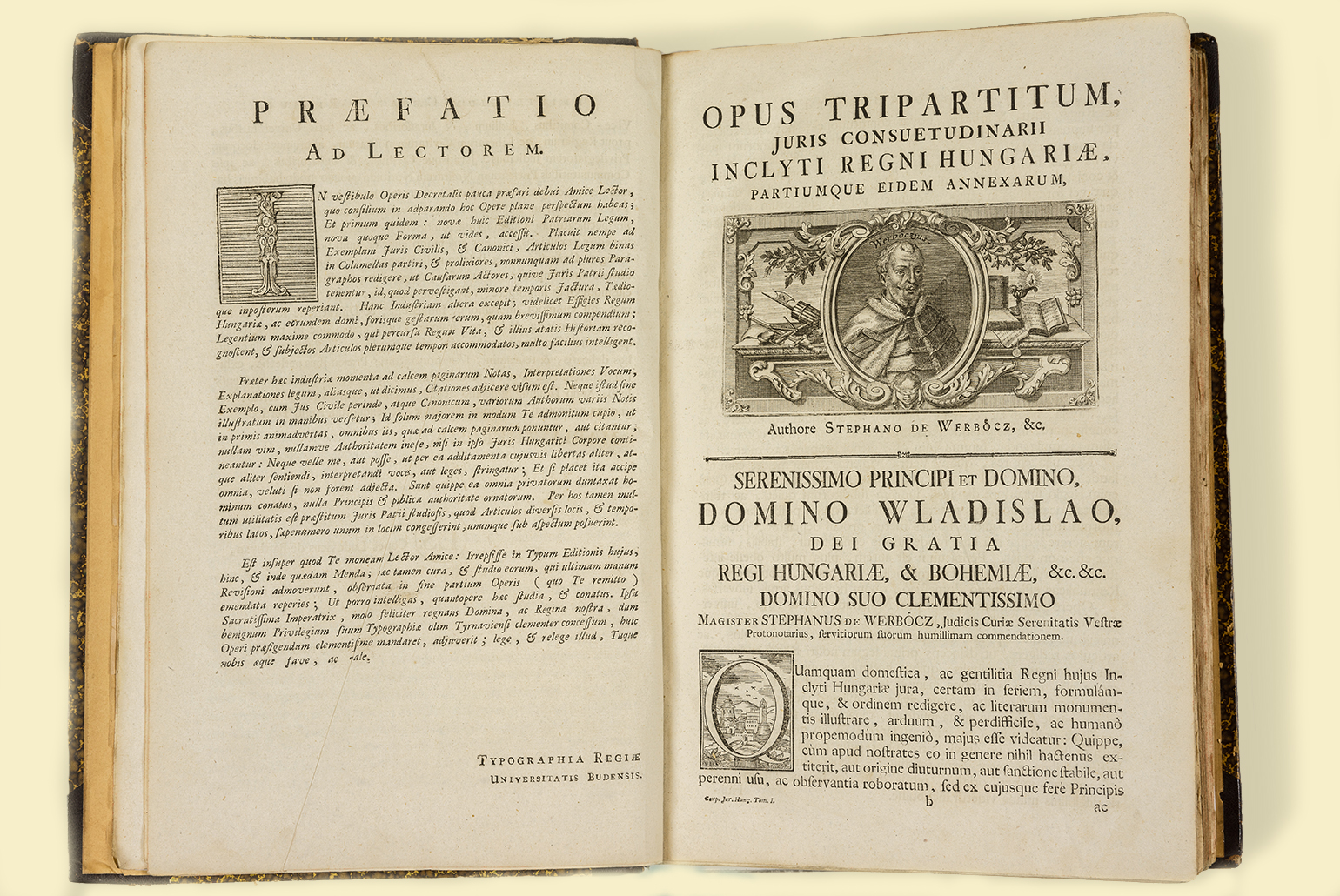Werbőczy
The Tripartitum (a book in three parts) of István Werbőczy
“Tripartitum of the Customary Law of Noble Hungary” was the original title of a work completed in 1514 by István Werbőczy, a protonotary appointed by the judge royal later elected palatine. Following this date and for long centuries after, right until 1848, these books were regarded as the “Bible” of Hungarian feudal thinking. The Tripartitum, originally written in Latin, was a systematically arranged collection and summary of contemporaneous rules of law and the theories of customary law.
Apart from the foreword, the work is divided into three parts: the private law of the nobles, the procedural law of the nobles, and the laws governing the towns, and serfs. Its most important tenet is provided by the four fundamental privileges applicable to the whole nobility – their personal liberty, their being accountable to the crown court, their tax exemption, and their right to resist, the latter being derived from the Golden Bull – which was the fundamental law for the freedom of the noble estates of the realm. The system of privileges applied to the whole nobility demonstrates the process whereby the lesser nobility gradually played an effective part in and contributed to the shaping of the power hallmarked by the Holy Crown.
The Tripartitum was first printed in 1517, and the first translation into Hungarian was published in 1565. Although this collection of customary law passed by the national assembly never became effective law due to the initial resistance of the barons, it was always incorporated into the Hungarian body of laws, known as the Corpus Iuris. At our exhibition the Corpus Iuris of 1779 opened at the Tripartitum can be seen; the volume forms part of the collection of the Library of the Hungarian Parliament.
Werbőczy - jobb hasáb
|
Source: Library of the Hungarian Parliament Photo: György Bencze-Kovács, Museum of the Hungarian Parliament
|




